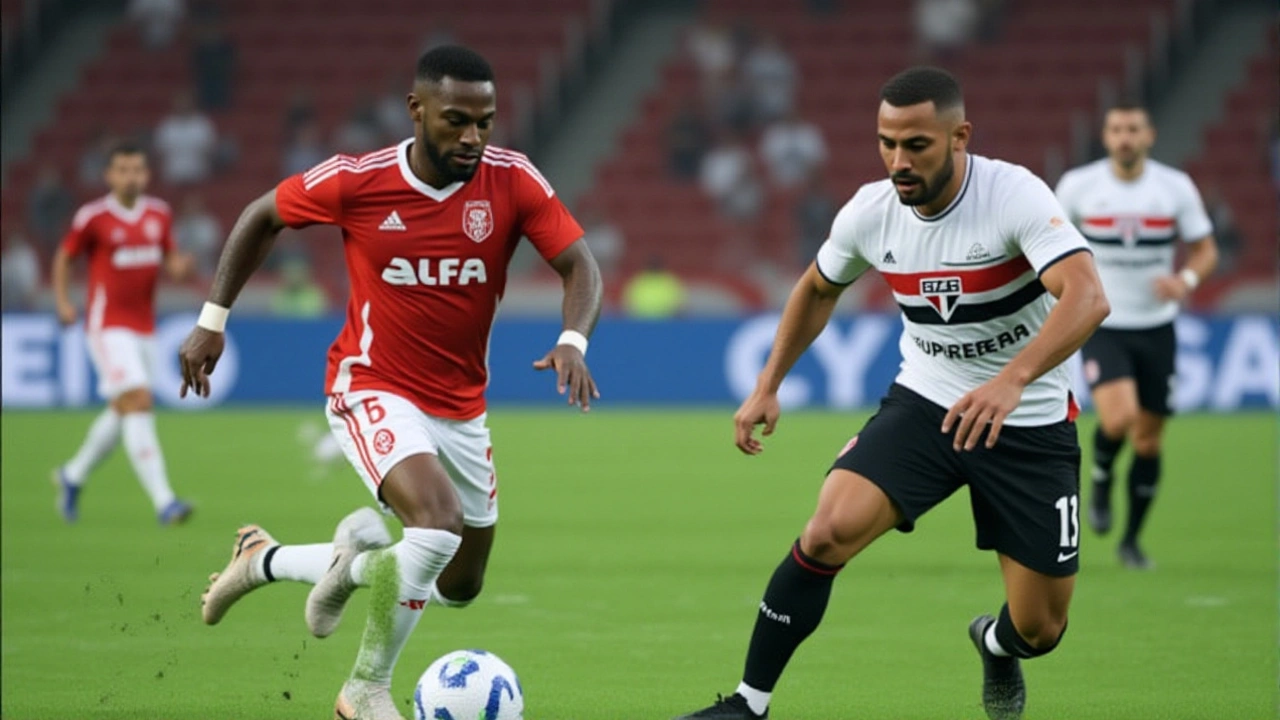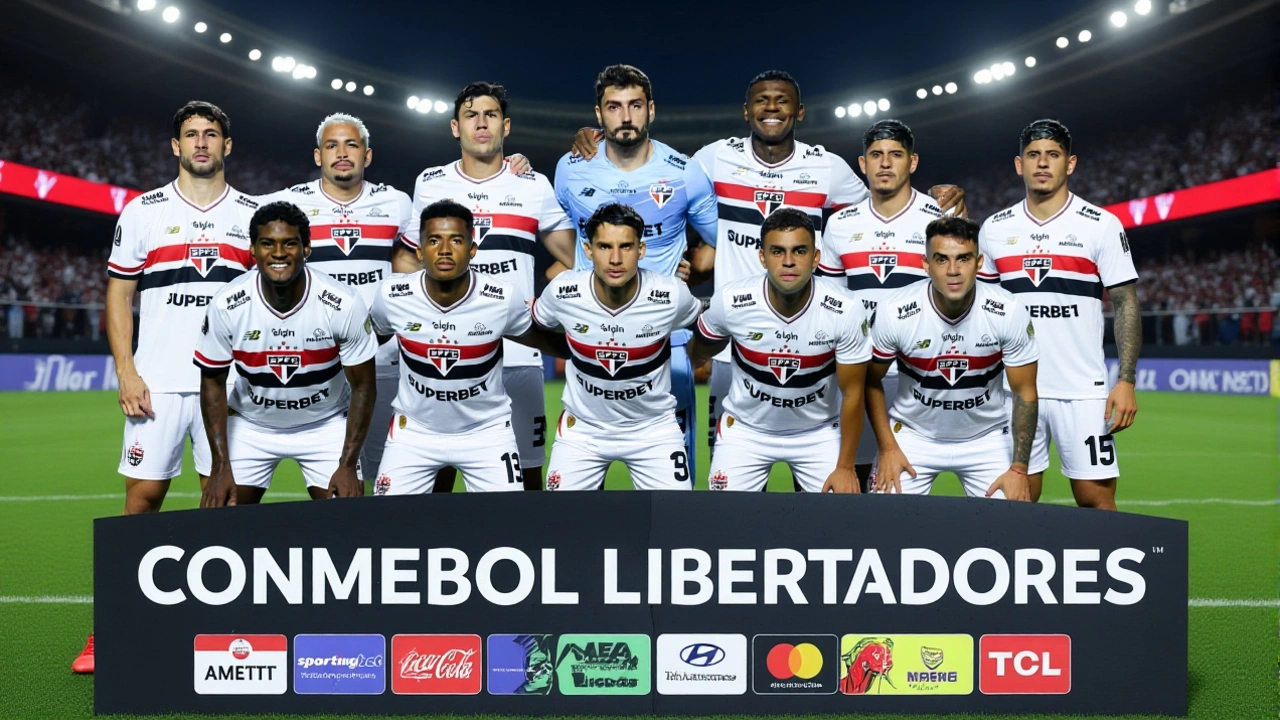When São Paulo Futebol Clube teamed up with its master sponsor Superbet and the Salvation Army, they turned a 22,000‑square‑meter stadium banner into more than 2,000 sleeping bags for people sleeping on the streets of São Paulo. The project, which began distribution on August 1, 2025, shows how a football celebration can become a lifeline for the city’s most vulnerable.
The banner originally draped the upper ring of Morumbi Stadium during a January 2025 victory over Corinthians. Over 13,000 meters of fabric—once a tribute to the club’s 95‑year legacy—were cut, stitched and repurposed into high‑quality sleeping bags that now carry the club’s colors and a promise of dignity.
From Goal Celebration to Community Aid
During São Paulo FC vs. Corinthians Morumbi Stadium, fans cheered as the club lifted a massive flag emblazoned with its crest. The same flag now serves a very different crowd—people who spend nights on the pavement of the Liberdade neighborhood.
"For Superbet, sport goes beyond the playing field and becomes a powerful platform for social transformation," said Alex Fonseca, CEO of Superbet Brazil. "The flag, which started as a tribute to the team and carried deep emotional meaning for fans, now takes on an even more important chapter."
How the Transformation Worked
First, volunteers from the club’s community outreach department measured the banner’s dimensions and identified sections suitable for repurposing. Tailors from a local cooperative then cut the fabric into panels, reinforced the seams and added insulated liners. The result: sleeping bags that meet Brazilian safety standards, each bearing the iconic red and white stripe pattern of São Paulo FC.
- Banner area: 22,000 m²
- Fabric repurposed: 13,000 m²
- Sleeping bags produced: >2,000 units
- Distribution launch: August 1, 2025
- Primary distribution site: Liberdade, São Paulo
The operation tapped into the Salvation Army’s century‑long network of shelters and social workers, ensuring each bag reached a person who truly needed it. "Our mission has always been to provide care, and this partnership amplifies that mission in a very visible way," said a spokesperson for the Salvation Army Brazil.
Voices from the Streets
When the first batch arrived at a community center in Liberdade, long‑time resident Joana Silva, who has been living on the streets for three years, expressed surprise. "I never thought a football flag could become something I could wrap around me at night," she said, her voice trembling with both gratitude and disbelief.
Local activist Marcos Lima, who runs the NGO Rua Aberta, called the initiative "a model for how sports entities can convert fan enthusiasm into tangible social wealth." He added that the sleeping bags could serve as a springboard for broader housing programs.
Why It Matters for São Paulo
Homelessness is a growing concern in Brazil’s biggest city. According to the latest municipal report, more than 30,000 people are currently living on the streets of São Paulo, with winter nights dropping to 12 °C in certain districts. The city’s cold‑weather shelters often run out of space, leaving many to sleep on sidewalks or under bridges.
By diverting a massive amount of otherwise wasted material, the project not only supplies immediate protection from the cold but also reduces landfill waste. Environmentalists note that reusing the banner avoids roughly 4,500 kg of textile waste—a win for both people and the planet.
Broader Implications for Sports‑Based CSR
The partnership mirrors a global trend where football clubs turn stadium assets into social tools. In the UK, Arsenal’s “Re‑Purpose” program transformed old stadium seats into school benches, while in Japan, a baseball team repurposed concession‑stand waste into community gardens.
What sets São Paulo FC’s effort apart is the scale and the direct involvement of a betting firm—Superbet—whose industry often faces scrutiny over social responsibility. By aligning with a reputable non‑profit like the Salvation Army, Superbet demonstrates that gambling operators can play a constructive role in local communities.
What’s Next?
Organizers plan to roll out a second wave of sleeping bags in October, targeting the colder southern districts of São Paulo. There’s also talk of a follow‑up project that could turn old match‑day jerseys into winter coats for children.
Meanwhile, the club’s fan base has been urged to submit ideas for future repurposing projects via a dedicated portal on the São Paulo FC website. The goal: make every piece of club memorabilia a potential community asset.

Frequently Asked Questions
How were the sleeping bags produced from the banner?
Tailors cut the 13,000 m² of banner fabric into panels, reinforced the seams and added insulated liners. Each bag retains the club’s red‑white stripe pattern and meets Brazilian safety standards.
Which neighborhoods will receive the sleeping bags?
The first distribution took place in the Liberdade district on August 1, 2025. A second wave is planned for October, focusing on the southern districts of São Paulo where winter temperatures dip further.
Why is Superbet involved in a homelessness project?
Superbet’s CEO Alex Fonseca says the company views sport as a platform for social change. Partnering with São Paulo FC and the Salvation Army lets the betting firm channel its CSR budget into a visible, community‑focused initiative.
What impact does the project have on the environment?
Reusing the banner avoids roughly 4,500 kg of textile waste, reducing landfill pressure. The initiative demonstrates how large‑scale sports memorabilia can be turned into sustainable community resources.
Can other clubs replicate this model?
Yes. The project provides a template: identify surplus stadium material, partner with a trusted NGO, and involve a sponsor committed to CSR. Several clubs in Europe and Asia are already exploring similar repurposing schemes.
